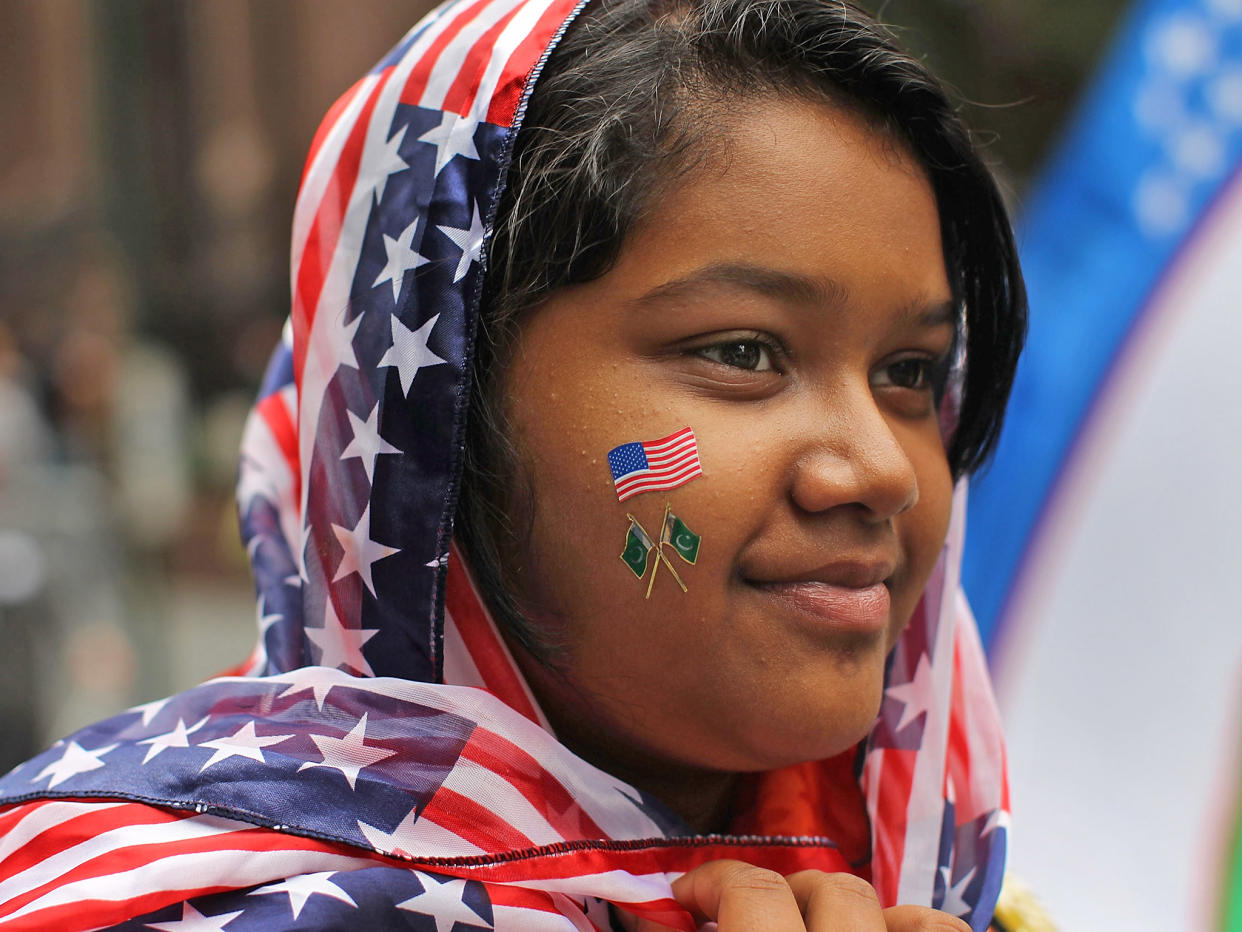Revealed: The disturbing reality of living in Trump's America as a Muslim

More than two-thirds of Muslim-Americans are concerned about their place in society following the election on Donald Trump, a new poll has found.
The survey by the Pew Research Center found that 75 per cent Muslims in the US feel there is still a lot of discrimination in the country and half feel it has got worse in recent years.
Around 62 per cent said they believed other Americans did not see Islam as part of mainstream society.
While 55 per cent of respondents said on balance most Americans were friendly to Muslims, 48 per cent said they had been racially discriminated against at least once in the past year.
Despite this 92 per cent of respondents still said they were “proud to be an American” and 70 per cent said they still believed in the American Dream that if you can work hard you can get ahead.
But there has been uptick in discontent about societal attitudes under Mr Trump compared with during Barack Obama’s administration.
In 2017, 64 per cent of Muslim Americans say they are dissatisfied about the direction the country is going in compared with 38 per cent in 2011.
Pew also reported a huge jump in the number of people who believe that the President is unfriendly towards Muslims, as 74 per cent say Mr Trump is hostile compared to just four per cent who said the same about Mr Obama.


It comes as Mr Trump’s controversial “Muslim ban” was partially restored by the Supreme Court.
The executive order in the first days of his presidency brought in a suspension of the US Refugee Admissions Programme for 120 days and placed an indefinite ban on Syrian refugees.
Anyone arriving from seven Muslim-majority countries - Iraq, Syria, Iran, Libya, Somalia, Sudan, and Yemen - also faced a 90-day visa suspension.
After it was blocked by the courts as unconstitutional, the administration introduced a revised ban with only six countries – after the intervention of the US military who expressed disquiet about upsetting their Iraqi allies while fighting Isis – subject to it.
The Supreme Court eventually ruled the country could not ban these people altogether.
As a result, the White House introduced amended rules, which went into effect at the end of last month, which meant anyone from those countries would have to prove a “close” family or business tie to the US.
But grandparents, grandchildren, aunts, uncles, nieces, nephews, cousins, brothers-in-law and sisters-in-law, fiancees or other extended family members are not considered to be close relationships, according to the guidelines issued in a cable sent to all US embassies.

 Yahoo News
Yahoo News 
